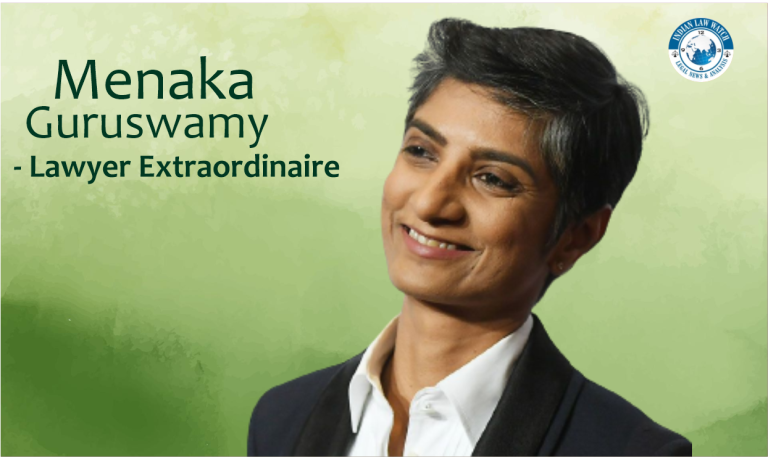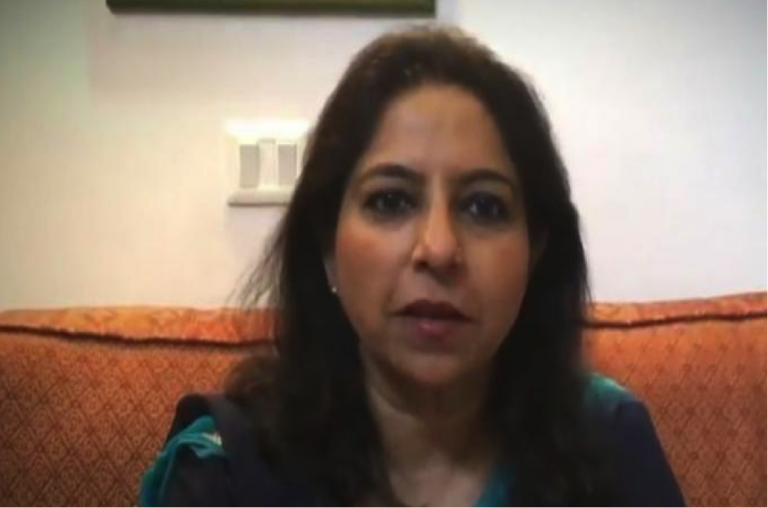
India is home to some very influential and powerful advocates who can hold the entire court in awe with their fabulous argument skills and one of the most prominent face is senior advocate Mr Harish Salve, QC. He is an Indian senior advocate who practices at the Supreme Court of India, who specializes in constitutional, commercial and taxation law. He primarily practices at the Supreme Court of India but also appears in various high stake matters in High Courts and in international arbitration. He served as the Solicitor General of India from 1 November 1999 to 3 November 2002. International persona of Mr Salve was before every Indian when we could see him fightubg the case of Kulbhushan Jadhav at the International Court of Justice (ICJ) and that even at Re 1. He was appointed as a Queen’s Counsel for the courts of England and Wales last year.
It’s always interesting to know more about a person through his roots and obstacles faced throughout his journey of life.
BACKGROUND AND FAMILY
Mr Salve was born in a Marathi family on June 22, 1955, in Warud, Sindkheda, Dhule, Maharashtra, India. His father, NKP Salve, was a Chartered Accountant and a politician belonging to the Indian National Congress. His mother, Ambriti Salve, was a doctor by profession. His grandfather, P.K. Salve, was a successful criminal lawyer and his great-grandfather (father of P.K. Salve) was a munsif (subordinate judge). He has one sister, Arundati. Salve who is a Christian, grew in a multi-religious family with liberal secularism at his home.
EARLY SCHOOLING AND FORMATIVE YEARS
He did his schooling at St. Francis De’Sales High School, Nagpur, Maharashtra. He completed his Chartered Accountancy from ICAI and LLB from Nagpur University. Before he became a lawyer, he did his Chartered Accountancy in Taxation. His alma mater, St Francis De Sales (SFS) High School in the city, boasts of a long lineup of legal luminaries and the two biggest names on that list come from the 1972 batch — Former Justice Sharad Bobde and ace lawyer Harish Salve.
Harish Salve pursued his LL.B. from Nagpur University. He was the Solicitor General for India. Harish Salve and Meenakshi tied the knot in 1982. The couple has two daughters- Sakshi Salve and Saaniya Salve. He was married to Meenakshi for 38 years and got divorced last year in June 2020, due to some irreconcilable differences between them. Currently, he is living in North London with his second wife- Caroline Brossard, whom he met at an art event. He married her last year in October. Also, changed his religion and now is a Baptist Christian.
CAREER IN LAW
Before he became a lawyer, Salve practised chartered accountancy in taxation. He began his legal career as an intern in 1980 at JB Dadachandji & Co. and later as a full-time lawyer. During this time he assisted famous lawyer Nani Palkhivala in the Minerva Mills case and was later in 1992, designated as Senior Advocate by the Delhi High Court. Salve has also worked with former Attorney General, Soli Sorabjee, from 1980–1986.
Salve was appointed as Amicus Curiae by the Supreme Court in some cases, mostly relating to the preservation of the environment. However, in 2011, he recused himself from this position during a hearing on illegal mining, on the grounds that he had previously appeared for one or more of the parties.
As a young boy, Salve wanted to be an engineer though by the time he was ready for college, he was deeply interested in Chartered Accountancy. His father, however, had given up accountancy and did only income-tax matters which brought him in close proximity to Nani Palkhivala. Palkhivala used to do a number of matters for N. K. P. Salve and Harish was a part of that environment.
Inspired by Palkhivala, Harish Salve discovered that while accountancy was boring, he thoroughly enjoyed income-tax and he decided that if he were to practice income-tax, he might as well do it as a lawyer. The big turning point in Harish Salve’s career came in 1975, when he was still preparing for the CA-Inter exam.
On his father’s behest, Harish Salve had prepared a note on some complicated point on the settlement commission’s proceedings which raised some new issues for interpretation. When that note was shown to Nani Palkhivala, he was very impressed and immediately asked Harish Salve “So, when are you joining the profession?”. “The die was cast that day,” says Harish Salve.
This was further cemented a few years later, when Harish Salve, by now working with J. B. Dadachandji & Co, was assigned to assist Nani Palkhivala in the Minerva Mills case. Nani Palkhivala suggested to Harish Salve that he should join the Chambers of Soli Sorabjee as a junior. After that there was no looking back for Harish Salve.
Being a CA and being exposed to commercial matters, Harish Salve had a natural advantage over other lawyers. His own senior, Soli Sorabjee, had a mental block with figures. He was a constitutional lawyer, not at all comfortable with issues like share valuation etc. Harish Salve conducted a large number of important matters whilst being Soli Sorabjee’s junior.
Harish Salve’s move into the super-big league came in November 1999 when he became Solicitor General. He was only 43 years of age at that time and held office till 2002. As law officer for the Union of India, Harish Salve conducted a large number of important matters like the first anti-dumping case which was argued in the Supreme Court and the first case of privatization of PSUs, the Balco case. Harish Salve was also involved in important non-litigation work such as conducting the WTO negotiations, drafting the electricity reforms and setting up legislation for the competition commission, which gave him a larger perspective to legal matters than that which a litigating lawyer has.
Harish Salve also gained from the fact that there were very few lawyers of stature practicing income-tax law in the Supreme Court. He became the first port-of-call for MNCs troubled with income-tax matters and did full justice to the trust and faith reposed in him. He appeared in a number of landmark matters.
In UCO Bank vs. CIT 237 ITR 889 (SC), he persuaded the Court that the earlier ruling in State Bank of Travancore vs. CIT 158 ITR 102 was per incuriam. In CIT vs. Podar Cement 226 ITR 625 (SC), he established that an “owner” was not necessarily only a person in whose favour the sale deed is registered. Azadi Bachao Andolan 263 ITR 706 (SC) was one of his more celebrated cases as were GE India Technology vs. CIT 327 ITR 456 (SC) and Ishikawajima-Harima Heavy Industries vs. DIT 288 ITR 408 (SC). Also, who can forget the RIL-RNRL dispute between Mukesh Ambani and Anil Ambani where Anil Ambani’s hard-won victory before the High Court was torpedoed by Harish Salve.
LANDMARK CASES OF HIS CAREER
Harish Salve has known to have successfully handled several high-profile corporate cases which made the legal road full of praiseworthy for him.
Salve shot to fame when he argued the first anti-dumping case in the Supreme Court of India. He frequently represents large corporations like Mukesh Ambani’s Reliance Industries Limited. He has appeared in the Krishna Godavari Basin gas dispute case against the latter’s brother, Anil Ambani’s Reliance Natural Resources Limited in 2016, where he won the case.
Salve represented Vodafone in its $2.5 billion tax dispute with the Indian government. He initially lost the case in the Bombay High Court, but later won it at the Supreme Court in 2012, after taking a temporary residence in London and relocating his office there to focus solely on the case.
He had also appeared for Bilkis Bano, a victim of the Gujarat Riots, at the behest of the National Human Rights Commission in 2003.
Also, his other clients include the Tata Group and ITC Limited, whom he has represented on various matters. He has appeared for several Tata group companies. He has also appeared for Ratan Tata himself.
MORE FEATHERS TO HIS ACHIEVEMENTS: INTERNATIONAL JOURNEY
In May 2017, he represented India before the International Court of Justice in the Kulbhushan Jadhav case. Jadhav was sentenced to death by a Pakistani military court on charges of spying. Due to his efforts, the International Court of Justice has ordered a provisional stay on Jadhav’s execution until a final verdict is declared. For this case he charged only Rs. 1(INR) in legal fees. Someone said any senior lawyer “would have done the same and with much less expenses than Harish Salve”, came in for a surprise when Minister of External Affairs Sushma Swaraj said that he has charged just Re 1 for the Kulbhushan Jadhav case.
Back in 2013, Salve was admitted to the English Bar and subsequently joined the Blackstone Chambers. And, in the same year, Salve was appointed to the English Bar. Salve’s name featured on the list of silk appointments, which was released by the UK Ministry of Justice in January and he was appointed QC in the same month. The title of QC is awarded to those who have demonstrated particular skill and expertise in the conduct of advocacy.
In 2015, he was awarded with India’s highest accolades, The Padma Bhushan Award.
On January 16, 2020 he was appointed as a Queen’s Counsel (QC) for the courts of England and Wales. Queen’s Counsel are seasoned advocates having exceptional knowledge and achievements in one or various fields of law.
India Today magazine ranked him 43rd in India’s 50 Most powerful people of 2017 list.
Hence, Harish Salve is an eminent Advocate with plenty of experience in the field of law and taxation. No doubt he is India’s one of the most expensive lawyer. He is inspired by Nani Palkhivala and considers him as his mentor. And also believes that even if a case is not so much popular but has something in it that can challenge his intellectuality, then he prefers to take that case.




